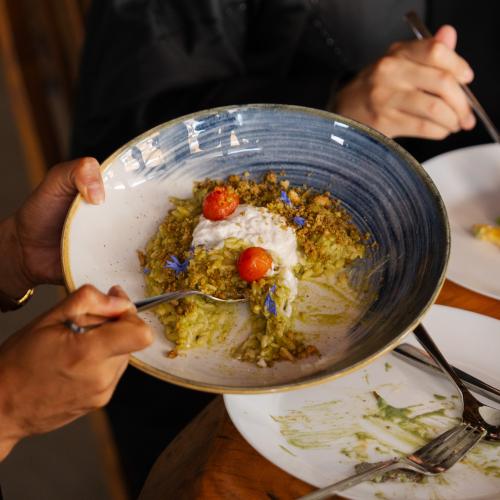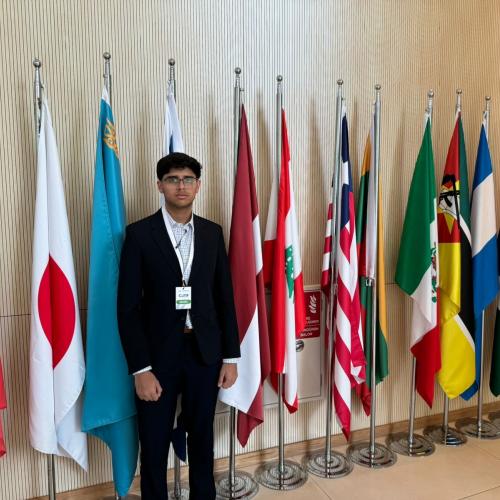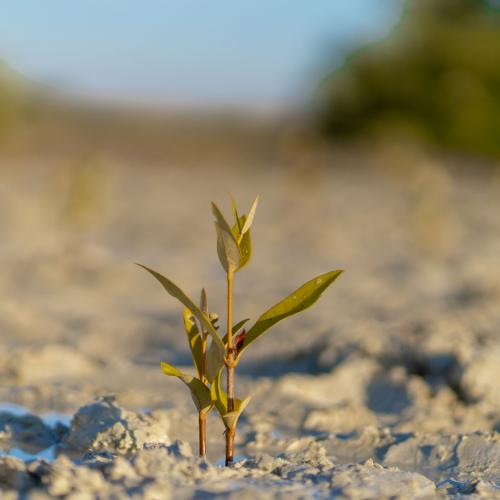UAE Embraces Halophytes for a Sustainable Food Future
Emirates Nature-WWF, as part of a multi stakeholder project looking at nature-based solutions (NbS) in the UAE, is leading an exploration of salt-loving halophytes with strong implications for local and sustainable food production.
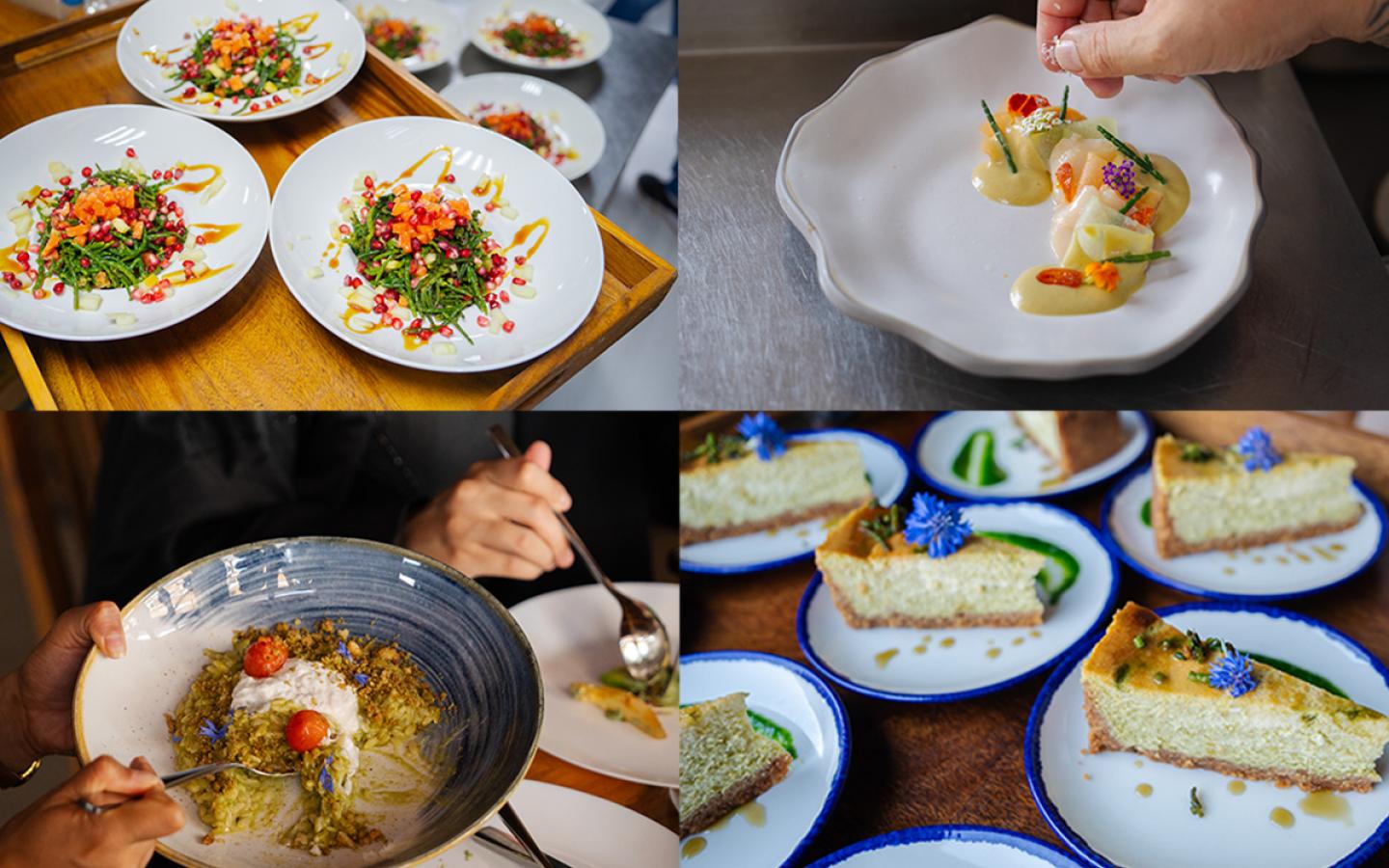
Dishes included salicornia salad, scallops and arthrocaulon, salicornia orzo and a cheesecake dessert of baked salicornia and camel milk
What are halophytes?
Halophytes are plants that have adapted to thrive in saline environments, such as the coastal lagoons, mangrove forests, salt marshes and mudflats that line the UAE shoreline. The name "halophyte" itself is derived from the Ancient Greek terms halas, which means "salt" and phyte, which means "plant."
Some species such as salicornia have been foraged and cultivated for food for centuries. It is known as samphire, sea beans, sea asparagus, glasswort and pickleweed in other parts of the world, and is even mentioned in Shakespeare’s famous tragedy King Lear.
Bright green in colour, salicornia is crispy in texture and pleasantly bitter to taste.
Even though several species of halophytes such as salicornia and arthrocaulon are native to the UAE, they are not yet part of the local food culture.
With support from UAE’s culinary community, sustainability advocates and savvy investors, a pilot halophyte project is being run in the UAE to introduce salicornia and arthrocaulon to the local market.
As part of this initiative, Emirates Nature-WWF, the International Center for Biosaline Agriculture (ICBA) and sustainability champion Omar Shihab brought together some of UAE’s finest chefs in the emirate of Umm Al Quwain, where they could witness first-hand the cultivation of this climate-resilient crop and sample gourmet dishes crafted with freshly harvested salicornia and arthrocaulon.
The project aims to inspire chefs and restaurants to add halophytes to their menus, and join the movement to advance sustainable gastronomy and contribute to positive impact for climate, nature and food security.
A Solution for Food Security
The successful restoration of mangroves and their associated habitats unlocks multiple opportunities for climate mitigation, adaptation and biodiversity as well as sustainable economic growth across key sectors including agriculture, fisheries, ecotourism and public recreation, amongst others.
The restoration of these ecosystems is considered an essential Nature-based Solution (NbS) in the UAE and features prominently in the national climate action plan, the UAE’s Nationally Determined Contribution (NDC), reflecting the national priority to conserve these vital habits at scale – in line with national and global biodiversity targets.
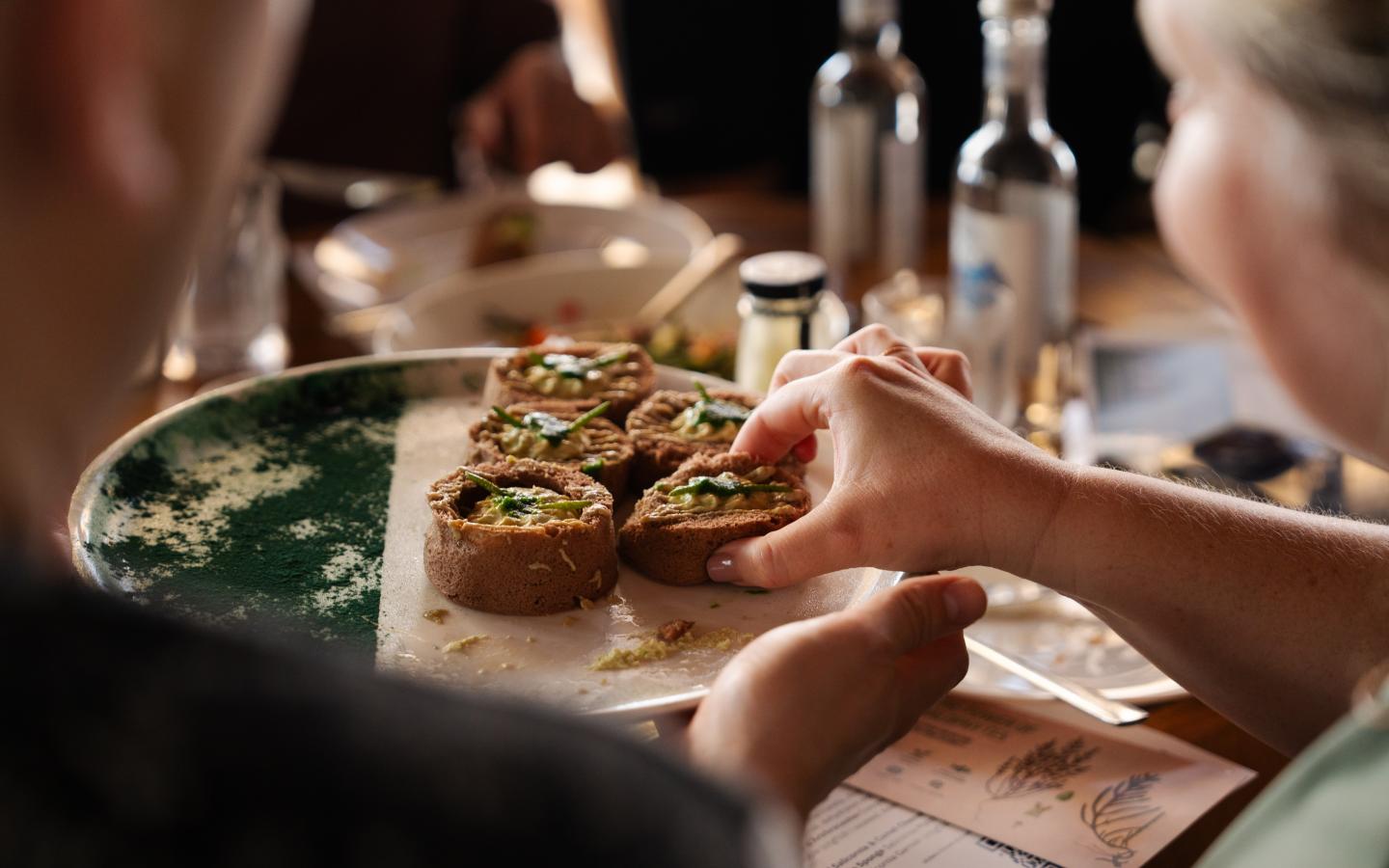
A Good Source of Vitamin B12
Nutritional analyses are being conducted by scientists from the International Center for Biosaline Agriculture (ICBA) on local species of halophytes that grow naturally along the coastal areas of the UAE.
The first results reveal that native salicornia’s fresh tips are high in essential minerals and the vitamin B12, which boosts energy and supports with brain function.
In addition, salicornia has significant amounts of antioxidants, contains all nine essential amino acids - a rarity amongst plants - and serves as a good source of fibre.

Chef Kelvin Cheung from Jun’s with Salicornia
An Ally Against Climate Change
Lesser known are the incredible environmental benefits these plants offer.
Halophytes act as strong carbon sinks - sequestering carbon from the atmosphere and storing it within its biomass and the soil below.
With specialized mechanisms to tolerate or even utilize salt in their growth and metabolism, halophytes can grow in semi-deserts and areas that are experiencing an increase in salinity - a growing environmental concern caused in part by climate change.
As such, halophytes are considered sustainable and climate-resilient plants.
Culinary Inspiration: How to Eat Halophytes
As part of the exclusive Halophytes experience in Umm Al Quwain, chefs built upon the existing culinary knowledge around halophytes and explored new combinations and applications of these highly versatile ingredients.
Chefs are part artists and part artisans, as noted by sustainability champion Omar Shihab, who is also the founder of MICHELIN Green Star restaurant BOCA. As artists, they help envision combinations that were previously unimaginable, thus influencing culture and tradition.
Through this collaboration, Emirates Nature-WWF aims to harness the transformative power of chefs to increase the appeal of halophytes as a super ingredient and to promote the commercial cultivation of halophytes in the UAE.
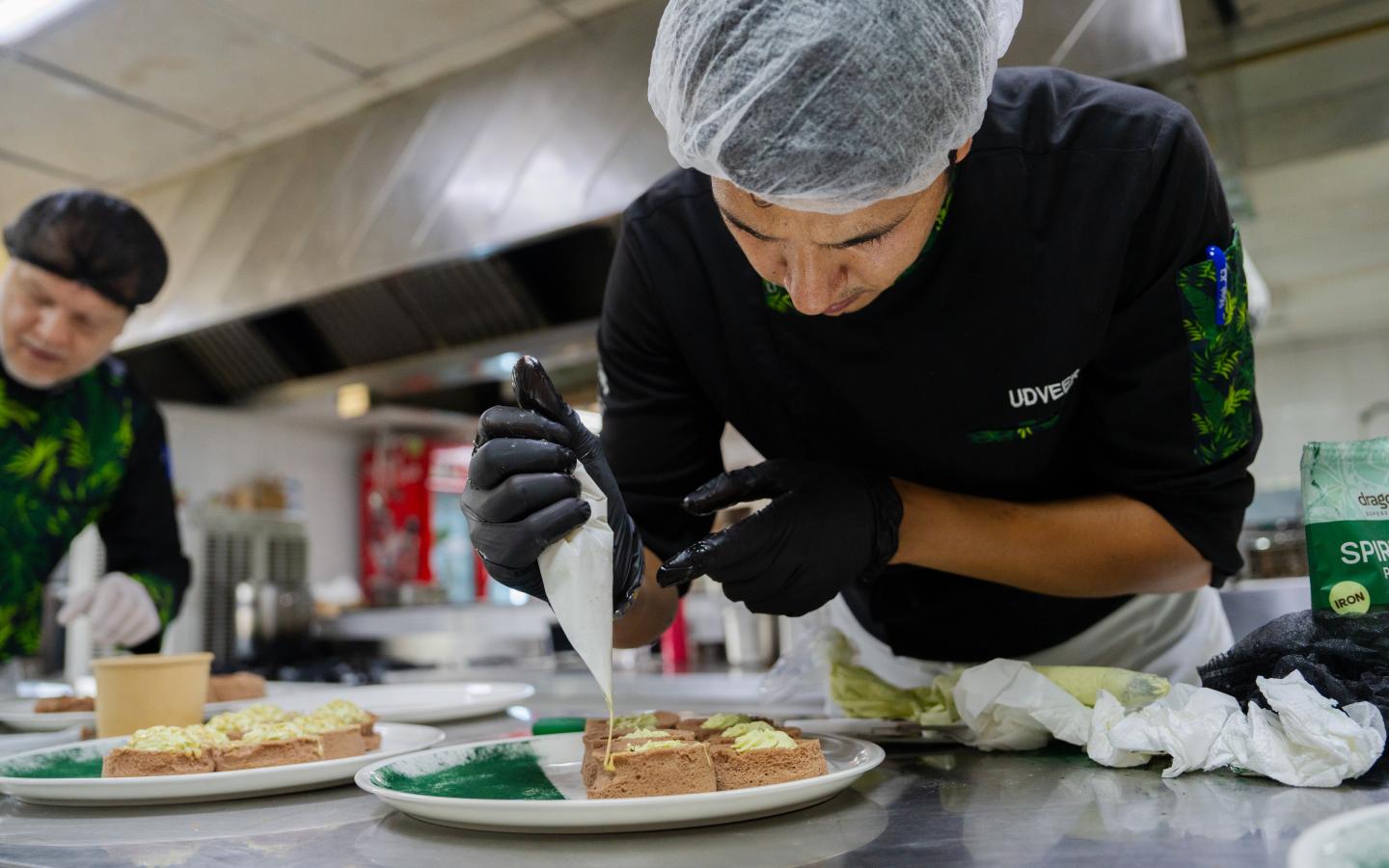
How to Cook Halophytes?
Halophytes, specifically salicornia and arthrocaulon, are highly versatile. Due to their high salt content, they pair excellently with seafood and fish.
Their slight bitterness and citrus notes make them a great alternative or accompaniment to asparagus, pairing well with eggs and mushrooms.
Salicornia and arthrocaulon can be eaten fresh, steamed, blanched or boiled. In simple or elaborate salads, soups, poke bowls, ceviches, dressings and even as a "pesto."
They are often pickled to extend shelf life, and can even be blended into refreshing detox juices or infusions.
Chefs Patricia Roig from BOCA, Kelvin Cheung from Jun’s, and Luca Cobre from Healthy Farm Eatery used transformative tools and techniques to showcase the culinary prowess of the halophytes salicornia and arthrocaulon through a special 10-course menu.
Through a mix of blending, blanching, shocking, puréeing, dehydrating and crushing into a seasoning power, and sautéing, they crafted a table full of unexpected, delectable dishes and desserts.
The "Nature-based Solutions for Climate, Biodiversity, and People - Enhancing resilience of blue carbon coastal ecosystems in the UAE” project in the UAE is funded by HSBC, and is a partnership between the UAE Ministry of Climate Change and Environment (MOCCAE), the Ministry of Economy (MoEc), the Environment Agency - Abu Dhabi (EAD), the Government of Umm Al Quwain, Emirates Nature-WWF and the International Center for Biosaline Agriculture (ICBA).
The project focuses on the protection, restoration and management of coastal ecosystems, including mangroves, seagrasses, and saltmarshes, as a key nature-based solutions (NbS) to support climate change mitigation, enhance biodiversity and open up new benefits for people through opportunities that unlock blended finance towards ecosystem protection, Blue Carbon, ecotourism, and food security, among others.
Learn more about Emirates Nature-WWF’s work with halophytes and nature-based solutions at naturebasedsolutions.ae.
Follow @ews_wwf on Instagram for more info!
